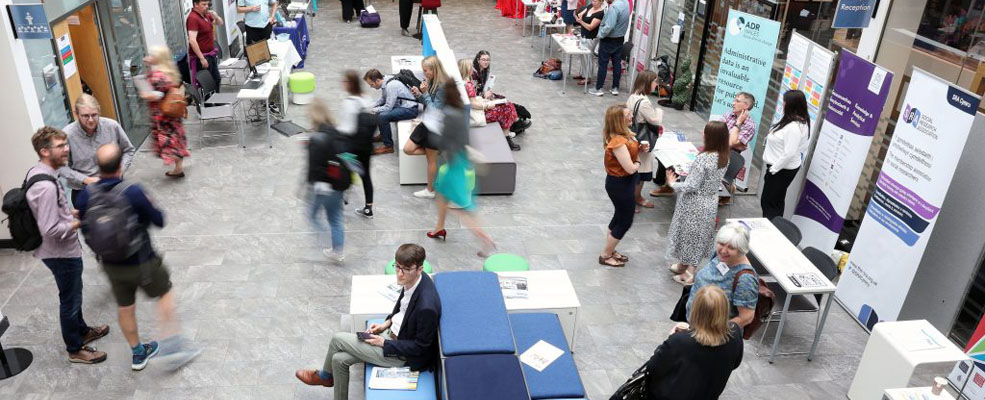On the 6th and 7th of July, over 140 delegates, presenters and exhibitors from across WISERD’s five partner universities and beyond gathered at Swansea University to hold the first WISERD Annual Conference since the start of the pandemic. The theme of this year’s conference was ‘Civil society and participation: issues of equality, identity and cohesion in a changing social landscape’, attracting over 50 papers.
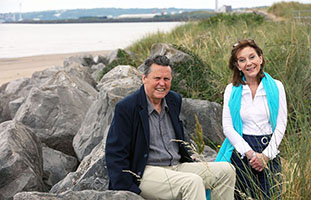 We were delighted to welcome two keynote speakers to join us at this year’s event: Professor Mererid Hopwood, Aberystwyth University and Dr Victoria Winckler, Director of the Bevan Foundation, along with Dr Steffan Evans, their Head of Policy. Professor Hopwood’s presentation, Listening to our Linguistic Landscape: thinking again about language and languages, was delivered in Welsh with simultaneous translation. “A word has memories that chime” Professor Hopwood said, as she illustrated on the active and living nature of language, and the creative advantage that comes with multilingualism.
We were delighted to welcome two keynote speakers to join us at this year’s event: Professor Mererid Hopwood, Aberystwyth University and Dr Victoria Winckler, Director of the Bevan Foundation, along with Dr Steffan Evans, their Head of Policy. Professor Hopwood’s presentation, Listening to our Linguistic Landscape: thinking again about language and languages, was delivered in Welsh with simultaneous translation. “A word has memories that chime” Professor Hopwood said, as she illustrated on the active and living nature of language, and the creative advantage that comes with multilingualism.
Dr Winckler’s keynote on day two reminded us of the challenges facing Wales and what you can do about them. Dr Winckler said: “Wales is sicker, poorer, less well educated and more badly housed than before. The least well off have lost the most.” The presentation was shared with Dr Steffan Evans who provided a fascinating insight into the free school meals case study, and how the Bevan Foundation successfully moved this campaign up the political agenda. It highlighted significant evidence gaps, the need for more collaboration in finding solutions, and the importance of effective engagement.
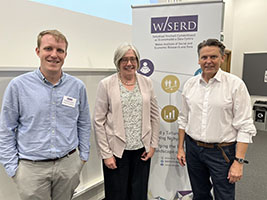
The event took place at the School of Management on the Bay Campus and alongside a packed agenda of keynote presentations, parallel sessions and more, the Atrium was filled with 14 exhibition stands. These included the Institute of Welsh Affairs (IWA), the Welsh Centre for International Affairs (WCIA), the Centre for Ageing and Dementia Research (CADR), the British Educational Research Association (BERA) the Learned Society of Wales (LSW) and others, including WISERD colleagues from ADR Wales.
Over the course of two days, the parallel sessions explored the conference theme through a variety of perspectives, including education, governance, housing, health, social care, language, identity, social justice, global connections, the labour market and more. Co-director and Associate Professor, Steve Smith from the University of South Wales, also hosted a workshop for the recently convened Well-being Network. This explored how academic and political debates about well-being relate to issues of social participation and civil society through the life course.
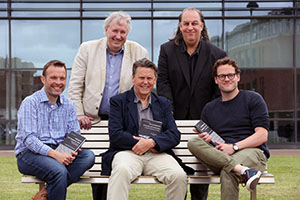
We also hosted a book launch for the WISERD Civil Society and Social Change Series with Policy Press, which sees the publication of three new titles in 2022 and the re-launch of several existing titles into a paperback format. Led by series editors, Professor Paul Chaney, Professor Ian Rees Jones and Professor Mike Woods, the launch event featured talks from the authors who presented research findings from the published volumes.
Throughout the course of the event, delegates were invited to view an exhibition, which comprised entries to this year’s PhD student poster competition – sponsored by the Learned Society of Wales and ESRC Wales Doctoral Training Partnership. Students presented and discussed their posters with delegates and the reviewing panel. We were delighted to announce the winners on day two of the conference – 1st prize
was awarded to Melda Lois Griffiths (Public Health Wales), 2nd prize went to John Poole (Cardiff University) and 3rd prize was received by Jami Abramson (Swansea University).
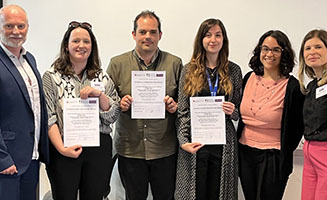
You can view the photo gallery on our website and see tweets from the event on Twitter by searching #WISERD2022.

